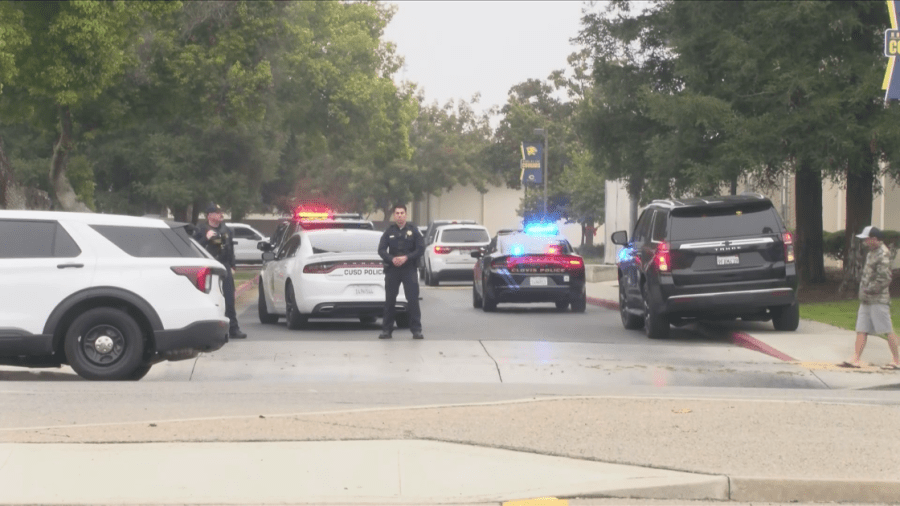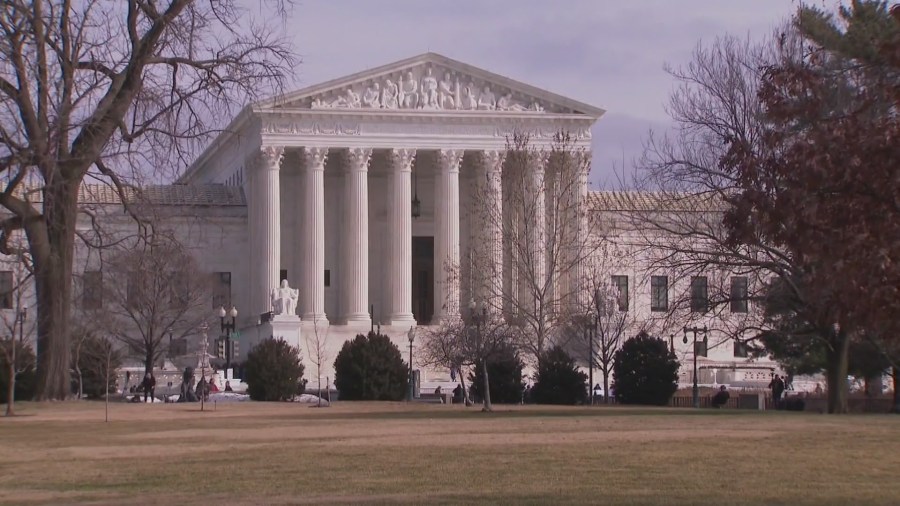

CLOVIS, Calif. (KSEE/KGPE) – Clovis High School was placed on lockdown after a shooting threat on Thursday that turned out to be a hoax swatting call.
While there was never a real threat or emergency, those calls have real-world implications for the students and staff caught in the middle.
“We were in lockdown for the entire 2 hours that we were there,” Kirsten Primose said. She’s a fifth-grade teacher at Mickey Cox Elementary School and serves as an activities director.
She was with her students on Thursday morning when the call came in.
They had just unloaded the buses for a leadership conference at the school, where high schoolers mentor the younger students. It was then that it became clear to Primrose that something wasn’t right. There had been reports of an armed man on campus.
“All the lights went off, and the kids got a little bit nervous. They were looking to the adults to kind of explain what was going to transpire. But none of us really knew too much at that point,” she said.
Despite the uncertainty, Primrose said the kids did okay, and the high school leaders helped keep the younger students calm.
“They kind of just went until like big brother big sister mode and didn’t really think about themselves in that situation, but how they could keep the elementary school kids comforted and keep them calm,” she added.
It wasn’t until hours later that they found out everything was alright, and the lockdown was lifted. The call was a hoax. It’s a problem the Clovis Police Department has been seeing for years.
“Unfortunately, it has become more prevalent. However, we treat every call seriously until we are determined otherwise,” Lieutenant Josh Richards said.
Richards said as soon as they stepped on the scene, it looked like nothing was wrong, but they had to fully respond anyway just to make sure. They even used their drone to get a better view of the school.
Richards said these calls can be virtually impossible to trace, and the callers are often times from far away.
“People use, you know, spoofed numbers, you know, different apps of that sort. So, it makes it very difficult sometimes to actually track that number down,” he said.
Those hurdles make these crimes hard to prosecute. Those who do get caught would face only misdemeanor charges. Richards said if, somehow, during the response, someone got hurt in the process, it could be a felony.
“Also, for some reason, if we determined that the call might be from out of state, there could be some federal implications,” he said.








